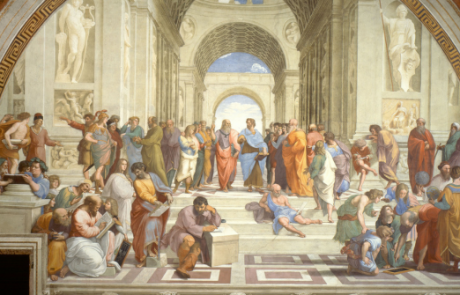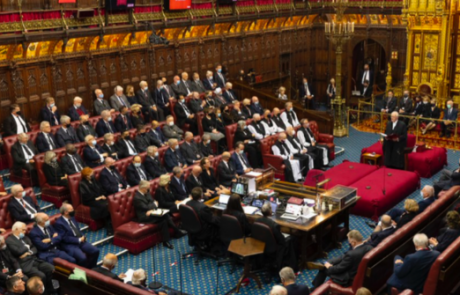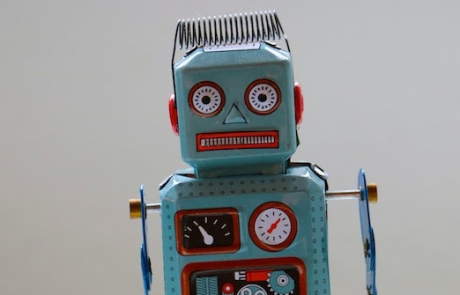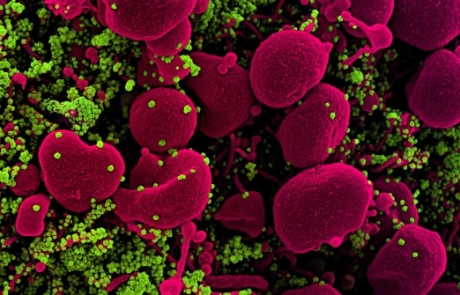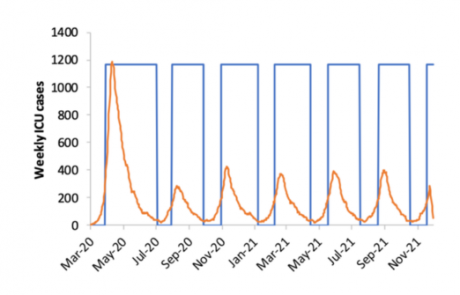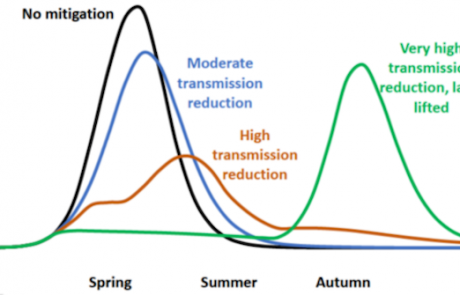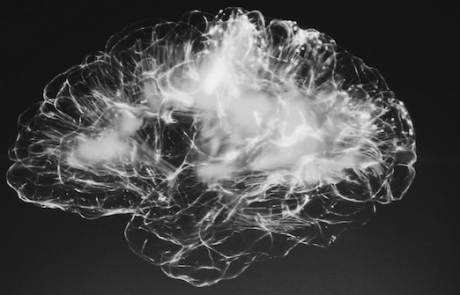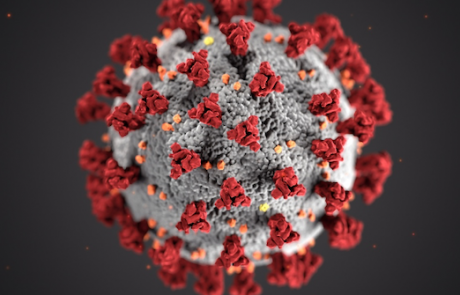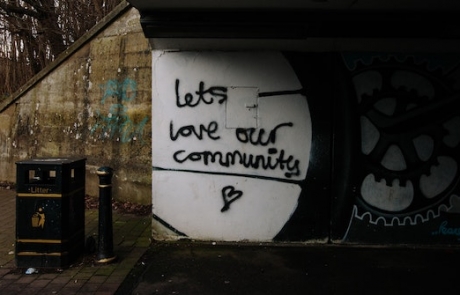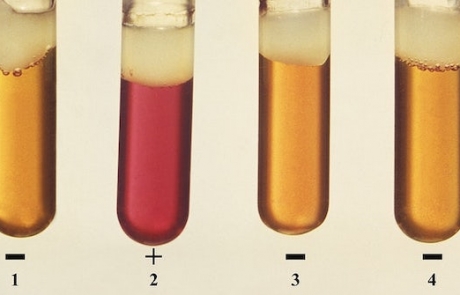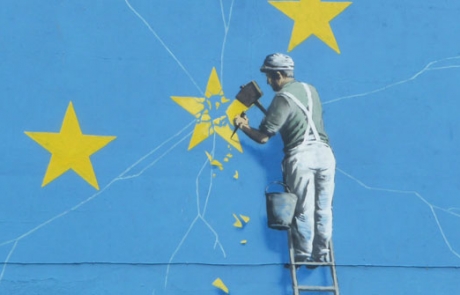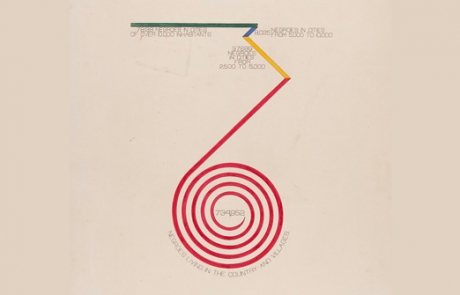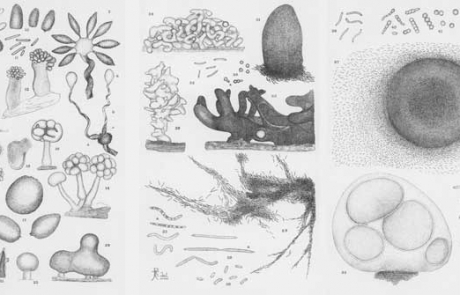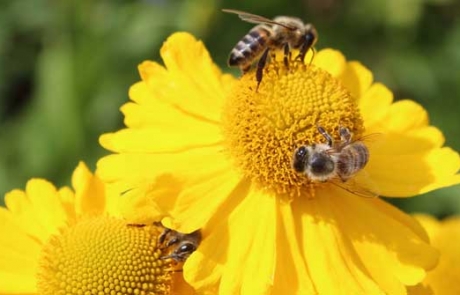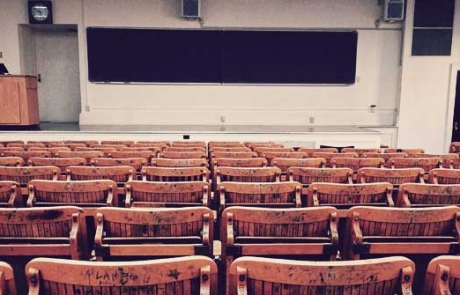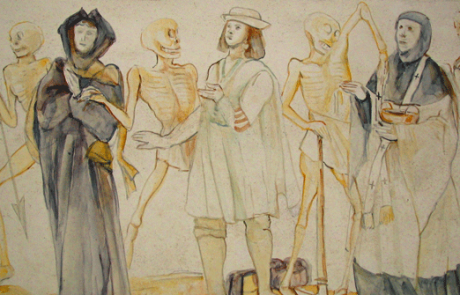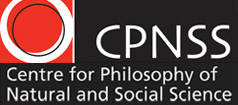One Oligarch, his Freedom, and Capitalism’s Shackles
Have you ever wondered why doing ‘what you ought’ has to be so hard? […]
The Polymathics of AI Ethics
As AI increasingly makes moral judgments across diverse cultures, Western philosophical foundations alone may […]
Pets and Power: Why it’s Wrong to Keep Pets
Many of us love living with pets. We share our homes, beds, food, and […]
Why Is Procedural Fairness in Health Financing Valuable?
A previous post proposed a framework for fair—that is, open and inclusive—ways of making […]
What Is Procedural Fairness in Financing Universal Health Coverage?
Ensuring Universal Health Coverage (UHC)—that everyone around the world has access to an adequate […]
“Now and then I re-read the manuscript, but the story isn’t mine anymore”: Taylor Swift and turning life into folklore
We are pleased to share the last article in our Taylor Swift and Philosophy […]
Taylor Swift on Grief
We have reached part three of our Taylor Swift blog series. Our series highlights […]
Taylor Swift and the Philosophy of Easter Eggs
We are pleased to share the second article in our Taylor Swift blog series. […]
Is Taylor Swift a Philosopher?
We are pleased to announce the first part of a very special blog series. […]
How AI Challenges Prudential Regulation
Decision-makers are sensitive to uncertainty. Prudential regulation in finance is a good example. In […]
Why is animal consciousness controversial? Talking to my inner sceptic
Many researchers now agree that animal consciousness is more common than once believed. One […]
Moral Progress: A Controversial Yet Important Idea
Moral Progress used to be one of the core ideas and commitments of the […]
Can seeing like a spider change policy and the future of AI?
Research into the minds of other animals and particularly invertebrates raises questions about how […]
Names that contain multitudes – Why policymakers should care about objects of credence
How individuals and groups are named and designated is inextricably linked to the expected […]
Military recruitment is a moral minefield
The head of the British army, General Sir Patrick Sanders, recently raised concerns over […]
Dementia and its handmaids
Many people have a period of dementia before they die. Indeed, dementia has been […]
The Euclidean Programme
Mathematical knowledge has puzzled philosophers for millennia. The LSE’s own Imre Lakatos coined the […]
Dementia, decision-making, and changing selves
Philosopher Richard Pettigrew (University of Bristol) shares his personal thoughts on changing selves and […]
The Epistemology of Peace
We are happy to share a very special blog post by Ariana Razavi, winner […]
Should the House of Lords be more democratic?
One of the key arguments in favour of an elected second chamber is that […]
What Ought to Be Our Response to Moral Uncertainty?
Rational agents can be uncertain about what is objectively valuable. Former CPNSS visitor Luca […]
Invertebrate Sentience, Welfare, & Policy
If an animal is sentient, we have an ethical obligation to consider its welfare. […]
Happy to be a woman. Just don’t need to attend to it so much.
A common complaint from those who are minoritised in certain domains of life, such […]
Daniel Ellsberg: Real Life Decision Theory
The world recently lost Daniel Ellsberg, famous for leaking the Pentagon Papers in 1971. […]
AI, invertebrates, and the risk of living absurdly
In our latest blog article Jonathan Birch talks about his life as a researcher […]
What’s the Point of Protest? A Reply to Parry
Last month, we published the blog article ‘What’s the Point of Protest’ by Jonathan […]
What’s the Point of Protest?
What is the point of protest? What makes a protest successful? Jonathan Parry explains […]
Social norms, contractualism and public policy: How gender affects epidemiology
How do social norms influence the effectiveness of public policy, and what are the moral, political and philosophical implications of taking social norms seriously? Elsa Kugelberg looks at the effect of gender norms on health policy.
What else is ending and what is beginning?
What does the future hold for analytic and experimental philosophy? Petr Jedlička looks at current research methods and asks where the next generation of philosophers might lead us.
Philosophy and Neurodiversity
What is neurodiversity, and what does it mean for philosophy? Sam Crutcher explores how “divergent worldviews” shape philosophical insight and discussion.
The devil’s in the framing: language and bias
How we say things can be as important as what we say. In this post, Ella Whiteley explores the “framing effect” and its implications for discussions of sex and gender.
The dangers of single metric accounting in public policy
How should policy-makers measure the impact of far-reaching policies? Johanna Thoma looks at some of the issues involved in relying on a single metric.
How to respond to Omicron: lessons from Alpha
When advisors warned of “significant concerns” about the Alpha variant, the UK government acted quickly. But suspicions about Alpha’s greater transmissibility were first noted a week earlier. Jonathan Birch suggests that when the stakes are so high, even low confidence in a particular outcome can be enough to justify policy interventions.
In the Name of Europe
How should philosophical writing employ the first-person plural, “we”? Simon Glendinning reflects on his recent work on the philosophy of Europe.
Statins and CVD (Cardio-Vascular Disease): Now It’s Personal!
What does the evidence say about the effectiveness of statins and about the balance between effectiveness and possible adverse side-effects? John Worrall – a long-time analyst of evidence in medicine – has recently had personal reason to reconsider these questions.
How should artificial agents make risky choices on our behalf?
Should artificial agents’ responses to difficult choices align with our own moral intuitions? Johanna Thoma considers the difficulties involved in programming machines to deal with risk, and how things look different from an aggregate point of view.
How studying the history and philosophy of RNA can help us understand COVID-19
How can the philosophy of science help inform our response to COVID-19? Stephan Guttinger looks at the history and philosophy of ribonucleic acid (RNA), a central but often overlooked molecule in the story of the pandemic.
Can beliefs be morally wrong?
It’s clear that beliefs can be wrong about the way the world is, but can they also be wrong in a moral sense? Lewis Ross looks at the moral status of belief.
Science and policy in extremis, part 2: the limits of SAGE’s neutrality and independence
Scientific advice cannot be completely neutral or independent, says Jonathan Birch. But records from autumn 2020 suggest that the Cabinet Office leant on SAGE to build in optimistic assumptions about the government’s ability to control the pandemic.
Animals, humans and pandemics: what needs to change?
How can we mitigate the risks of future pandemics? Jonathan Birch looks at the role of human behaviour in the emergence of new zoonotic diseases.
What are “scientific models”, and how much confidence can we place in them?
Modelling is vital if we are to control COVID-19, but it is not infallible. In this post, Roman Frigg and James Nguyen explain how epidemiological models work and consider the uncertainty inherent in their predictions.
Bad data and flawed models? Fact-checking Winsberg et al.’s case against lockdowns
Can the justification for current COVID restrictions be challenged on scientific grounds? Philippe van Basshuysen and Lucie White look at the evidence used by Winsberg et al. in their case against lockdowns.
Science and policy in extremis, part 1: what can we learn from the UK’s initial response to COVID-19?
SAGE uses a set of assumptions called the “reasonable worst-case scenario” in its pandemic […]
The mind-body problem
What’s really at stake in the mind-body debate? Jonathan Birch looks at some of the explanatory differences in approaches to the metaphysics of consciousness.
Lives v livelihoods: Evaluating policies to address COVID-19
Policies that suppress or control COVID-19 prevent illness and save lives, but exact an economic toll. How should we balance lives and livelihoods to determine which policy is best? Richard Bradley, Alex Voorhoeve et al. compare benefit-cost and social welfare approaches to the pandemic.
G. E. Moore’s hands vs. radical scepticism
Do we need to prove that we’re not living in a computer simulation? Jonathan Birch looks at G. E. Moore’s famous argument against scepticism.
Ideally Value-Free Coronavirus Science
How does the role of scientist relate to the role of policy-maker? Philip Thonemann looks at coronavirus science, public policy and the value free ideal.
A Virus Is Not a Thing, Part 3: What virology can tell us about philosophy
How can findings in virology help answer ontological questions of process and substance? In the final post in this series, Stephan Guttinger looks at viral life cycles and the role of intrinsic properties.
A Virus Is Not a Thing, Part 2: Do viruses jump? Process-thinking and the question of pandemics
What happens when a virus crosses species? Stephan Guttinger looks at viral jumps and the origins of pandemics.
A Virus Is Not a Thing, Part 1: The case for a process view of viruses
It seems natural to picture viruses as individual microscopic entities, but might there be another more accurate way to think about them? In the first of this three-part series, Stephan Guttinger presents the case for a process view of viruses.
Keeping Close to Home: Communities and Contagion
What is the influence of community on public health? Katherine Furman considers some of the social aspects of the pandemic.
Immunity Testing: Our passport out of lockdown?
Immunity testing has been touted as one of the best ways to escape lockdown, but just how accurate will these tests have to be? Richard Bradley and Liam Kofi Bright look at inductive risk and policy-making during the pandemic.
Coronavirus and 5G towers: Why do people believe weird sh*t?
With fake news and disinformation seemingly thriving during the COVID-19 pandemic, J. McKenzie Alexander looks at the epistemology and psychology of fringe beliefs.
The Naturalistic Case for Free Will, Part 3: Indeterminism as an Emergent Phenomenon
Could the universe be deterministic at some levels and indeterministic at others? In the final post in this series, Christian List looks at micro and macro levels of description.
The Naturalistic Case for Free Will, Part 2: An Indispensability Argument
What are the requirements of free will, and how can we show that these requirements are met? In the second post in this series, Christian List proposes an indispensability argument for the existence of free will.
The Naturalistic Case for Free Will, Part 1: The Challenge
Is there space for free will within a scientific worldview? In the first of this three part series, Christian List looks at free will scepticism and outlines his own compatibalist response.
Is Brexit the will of the people? The answer is not quite that simple
Christian List looks at majoritarianism, Condorcet’s paradox and the UK’s decision to leave the EU.
How do we know how to act together?
How are humans able to act cooperatively and why don’t we see such behaviour in other primates? Jonathan Birch looks at the concept of “joint know-how”.
Media Impartiality, Part 2: How
In the second of this two-part series, Joe Mazor looks at how the news media can achieve the right kind of impartiality.
Media Impartiality, Part 1: What, When, and Why
In the first of this two-part series, Joe Mazor looks at media impartiality, what it is, and when and why it is important.
Getting the Details Just Right: Solving the “Goldilocks Problem” of Scientific Explanation
How much detail is the right amount of detail for a scientific explanation? David Kinney looks at getting things just right.
The Ethical Homeopathic Placebo?
Should doctors be allowed to prescribe homeopathic treatments on the NHS? John Worrall looks at the scientific and ethical status of homeopathy.
Africana Philosophy and the Social Epistemology of Science: an interview with Liam Kofi Bright
Liam Kofi Bright, currently at Carnegie Mellon University, joins LSE Philosophy in September. We thought we’d celebrate his imminent arrival with some questions.
Reproductive Choices and Climate Change Part 2: should individuals have fewer children to mitigate climate change?
It is claimed that having fewer children will help reduce greenhouse gas emissions, but is it that straightforward? Eric Brandstedt looks at some of the complexities of this recommendation.
Reproductive Choices and Climate Change Part 1: can you reduce your emissions by having fewer children?
Our lifestyle choices determine our individual carbon footprints, including the decision whether or not to have children. But should parents should be held responsible for the emissions of future generations?
Immigration and the Natural Lottery
Whose interests should matter when deciding a nation’s border policy? Campbell Brown takes a moral look at border control.
After Obamacare
How should US policy-makers choose a replacement for the Affordable Care Act? Dan Hausman looks at the values and economic complications guiding health care reform.
The Philosophy of Social Evolution Part 5: Cultural inclusive fitness?
In the final post in this series, Jonathan Birch considers the development of large-scale human cooperation.
The Philosophy of Social Evolution Part 4: The social organism
Has the time come for a revival of the “cell state” perspective? In part 4 of this series, Jonathan Birch looks at the evolution of multicellular life.
The Philosophy of Social Evolution Part 3: Relatedness, time and bacteria
In the third installment in this series, Jonathan Birch looks at “horizontal transmission” and relatedness in bacteria.
The Philosophy of Social Evolution Part 2: Relatedness and Altruism
How can we explain the evolution of altruism? In part 2 of this series, Jonathan Birch considers “Hamilton’s Rule”.
The Philosophy of Social Evolution Part 1: Altruism in Nature
In the first installment of this five-part series, Jonathan Birch looks at biological altruism, a key concept from his new book The Philosophy of Social Evolution.
The Last Hope Part 3: Attitudes
How do you hope to be thought of after you die? In his final post in this series, Luc Bovens looks at attitudes towards the dead.
Weathering catastrophic storms: the science and philosophy of hurricane prediction
The science of predicting hurricanes is crucial for disaster management and insurance, but also raises difficult methodological and philosophical questions. In this post, Joe Roussos asks whether hurricane modellers should average the results from different models of hurricane frequency.
An Education in Diversity?
Can compulsory formal education be justified on liberal grounds? Christina Easton on J. S. Mill, John Rawls and the famous Wisconsin v. Yoder court case.
The Last Hope Part 2: Dying Well and a World Without Me
In the second part of this series, Luc Bovens looks at a good death and a future without oneself.
Philosophy of Language for Decision Theory Part 2: Indexicals and Vagueness
In her second post in this series, Anna Mahtani explores the parallels between philosophy of language and decision theory’s treatment of indexicals and vagueness.
The Last Hope Part 1: A Worthwhile Life
In the first in this three-part series, Luc Bovens looks at death, immortality and the worthwhile life.
Philosophy of Language for Decision Theory Part 1: Credences and Preferences
Decision theorists and philosophers of language have a lot to learn from one another. In this post, Anna Mahtani looks at the use and interpretation of credences and preferences.
The scientific limits of understanding complex social phenomena
Can we give accurate scientific explanations for social phenomena? In this post, CPNSS Research Fellow Alexander Krauss looks at the proposed link between economic inequality and democratic change.



















